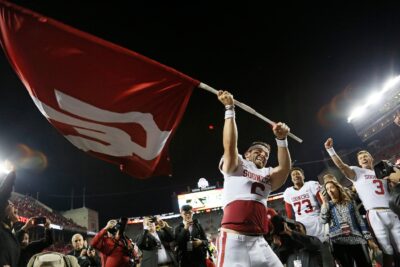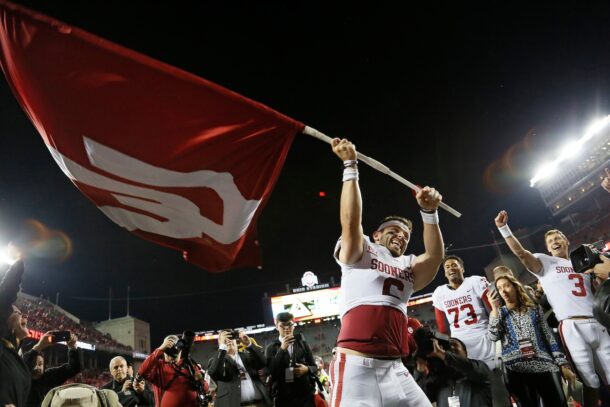
I totally get why it’s being done, but canceling spring games isn’t without impact
When Florida announced Tuesday that it would not be hosting a 2021 spring game, I probably had a similar thought as you.
Man, what a bummer.
Thanks to 2020, we’re all experts in the school of reacting to canceled events. It was a reminder that a new year doesn’t necessarily mean a new approach to reality. Florida athletic director Scott Stricklin made an announcement that plenty of athletic directors (not all) will have to make. That is, a spring football game isn’t worth it with these circumstances.
Was part of Florida’s trend-setting announcement motivated by the desire to deviate from Dan Mullen’s infamous “pack The Swamp” plea after the Texas A&M loss? Perhaps. Perhaps not.
What we do know is that there’s still a pandemic going on, and an exhibition football game probably doesn’t really seem like something worth justifying for some programs. There’s still a dead period, so it’s not like recruits can be there. It would be a reduced capacity crowd, which already has reduced pricing. It’s not a regular-season game wherein massive TV contracts are involved, either.
It’s a glorified practice that, under normal circumstances, helps us forget that we’re still months from watching a meaningful snap.
Having said all that, canceling spring games isn’t without impact. We’d be foolish to think that.
No, I’m not referring to the autograph seekers who won’t get to try and make a living off reselling signatures from college kids (some programs have done away with those). I’m not even referring to people like us in the content business who don’t mind having a few Saturdays worth of news come from an intra-squad game.
Who actually benefits spring games? Players and coaches.
They aren’t the end all, be all, but personnel decisions can certainly be made from a spring game. Position battles play out and guys get a stage that doesn’t exist for the other 8 months of the year. Some thrive on it, some crumble on it. It doesn’t determine long-term success, nor does it determine long-term failure. It’s only 1 data point.
We can see guys thrive in spring games and then end up in the transfer portal a short while later (Malik Willis). We can also see situations like 2019 LSU, wherein the offensive transformation was evident in the spring game, and it proved to be a sign of things to come.
Spring games don’t matter for everyone. Do we need to see Matt Corral start in a spring game to know what he and that Ole Miss offense are capable of? No. Would it have been huge for Dan Mullen to get to see Emory Jones in his first spring game as the presumed starter? Absolutely.
For non-established quarterbacks, spring games matter. Besides the obvious of trying to establish a rapport with the receivers, that spring game stage also provides an opportunity for signal-callers to settle into the flow of a game. Are they too juiced up and overthrowing receivers? Do the surroundings overwhelm their ability to make decisions?
You’ll hear no shortage of coaches talk about the importance of a spring game being a key factor in deciding a quarterback battle. By my count, there are only 4 SEC programs that return their full-time starting quarterback and head coach:
- Georgia
- Mizzou
- MSU
- Ole Miss
That means 10 SEC teams will have either a new full-time starting quarterback or a new head coach. Look at all the SEC programs just with new offensive coordinators:
- Alabama
- Auburn
- Florida
- Kentucky
- LSU
- South Carolina
- Tennessee
- Vanderbilt
Granted, not all of those programs are overhauling their systems (Florida is the only one of that group without a new offensive play-caller). Still, though. That’s 8 teams with new offensive coordinators who would probably like to get a more realistic look at their quarterbacks — some incumbent and some not — in a game-like situation before September. This isn’t basketball where there’s a preseason with a handful of exhibition games.
This is crucial in the evaluation period. It’s also usually crucial in the recruiting period. But with the NCAA extending the dead period through April 15 — that means no in-person visits — we’re talking about another cycle of recruits potentially missing out on getting those visits to make an important decision before their senior seasons.
Again, does it make sense that this is the way things are playing out? Sure. Is it OK to acknowledge the impact? Definitely.
We have to be consciously aware of how these circumstances impact people, even as they become more and more entrenched in this bizarro reality that we’re living in.
From an on-field standpoint, there’s a chance we’ll look back on some of the absurd offensive numbers put up and decide that an offseason that yielded so few opportunities for tackling probably had something to do with that. We’re allowed to acknowledge that canceling spring games impacts more than football junkies who want something to watch after March Madness ends in April. It’s OK to understand the circumstances and still be bummed that plenty of early enrollees, transfers and hopeful starters won’t get that annual platform.
Even though we all wanted to turn the page and keep our fingers crossed that 2021 will feel much more normal than the 2020 season, Stricklin’s announcement was a “not so fast” moment.
Brighter days are ahead. We just still have some pandemic aftershocks to work through.
Connor O'Gara is the senior national columnist for Saturday Down South. He's a member of the Football Writers Association of America. After spending his entire life living in B1G country, he moved to the South in 2015.







